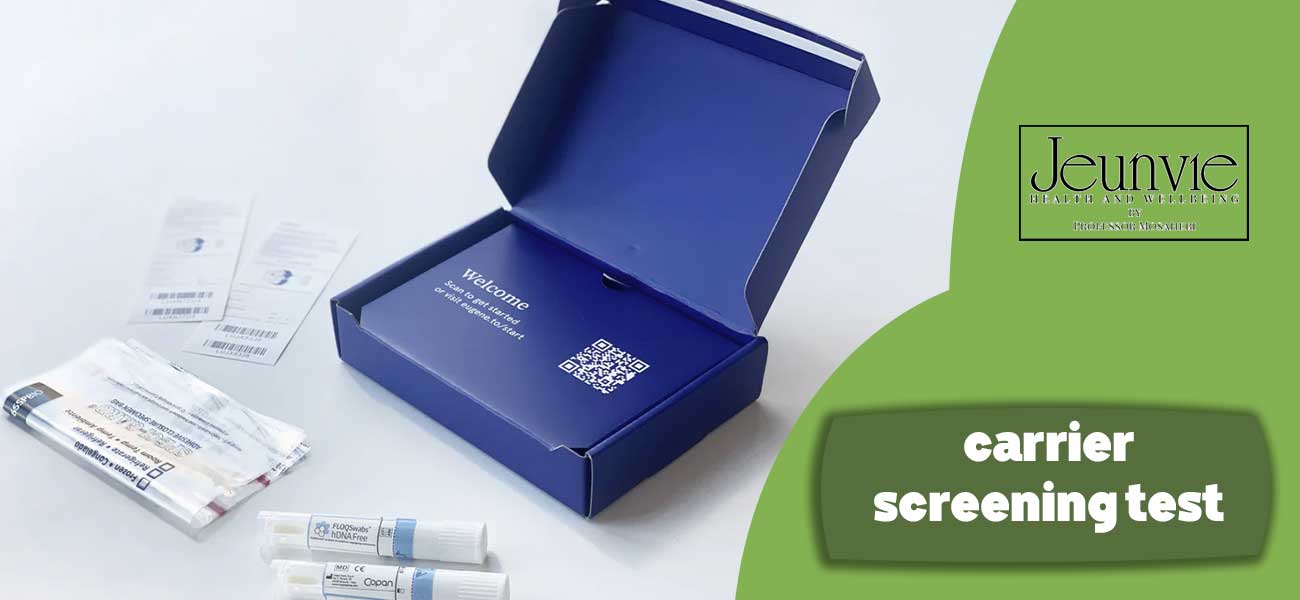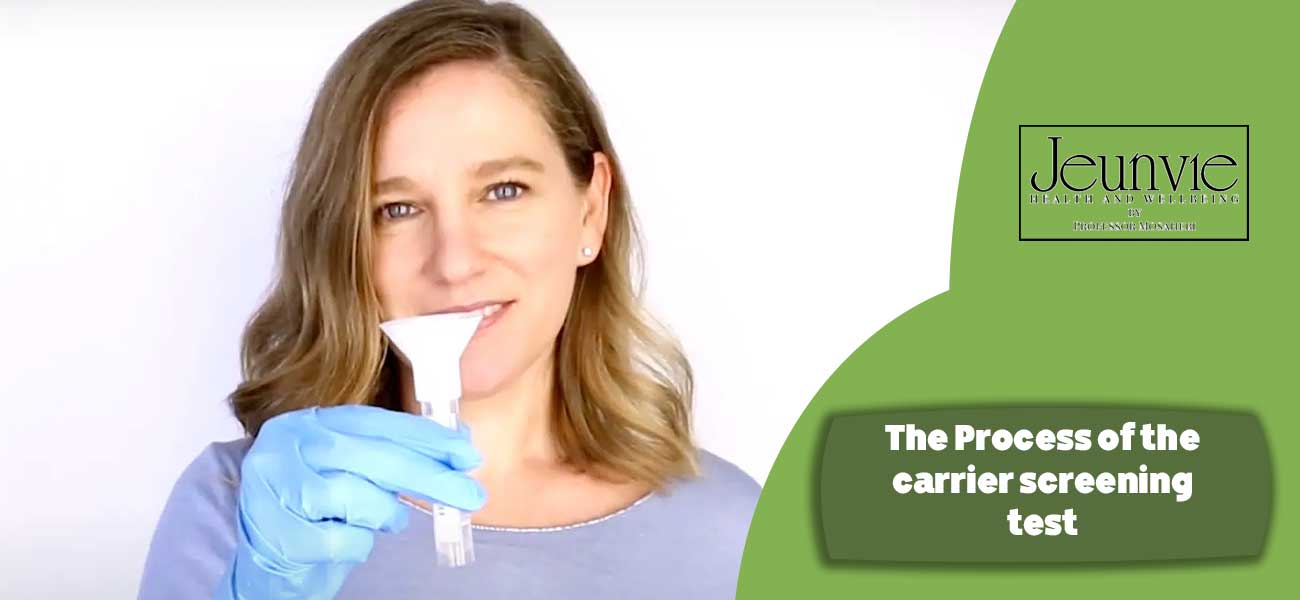A carrier screening test is a genetic examination designed to identify individuals who carry specific genetic mutations. These mutations can be passed on to offspring, leading to inherited diseases, although the carrier themselves may not exhibit any symptoms. Typically carried out using a blood or saliva sample, this test assists couples in determining whether there is a risk of transmitting genetic disorders to their children.
The Significance of Carrier Screening in Preventing Inherited Diseases
Carrier screening plays a pivotal role in preventing inherited diseases. It is particularly recommended for couples with a family history of genetic disorders or those belonging to specific ethnic groups. The outcomes of these tests can inform crucial decisions regarding family planning and medical choices. For instance, if one partner is a carrier of a genetic mutation, genetic counselling can explore various options such as in vitro fertilisation (IVF) or the use of genetic donors. In essence, carrier screening can contribute to preventing the birth of infants with genetic diseases, empowering parents to make more informed choices about their children’s health.

Types of Carrier Screening Tests
1. Various Genetic Tests
Carrier screening tests can be conducted in several different ways, each with its own advantages and disadvantages. The most common methods include:
- Blood Tests: These tests are typically performed by taking a sample of blood. The results can reliably indicate whether an individual carries specific genetic mutations. This method is highly prevalent due to its accuracy and ability to detect multiple conditions simultaneously.
- Saliva Sampling: This method is straightforward and involves collecting a sample of saliva from the individual. While the accuracy of this test may be somewhat lower than that of a blood test, it is an attractive option for many due to its non-invasive and convenient nature.
- Other Genetic Tests: There are additional methods, such as tissue sampling or amniotic fluid analysis, which are usually carried out later in pregnancy for a more thorough assessment of the fetus’s condition.
2. Diseases Identifiable Through These Tests
Carrier screening tests can identify various genetic conditions. Some common diseases that can be detected include:
- Cystic Fibrosis: An inherited disorder that primarily affects the lungs and digestive system.
- Thalassaemia: A hereditary blood disorder that can lead to anaemia.
- Haemoglobinopathies: Including conditions such as Sickle Cell Disease, which impacts the blood’s ability to carry oxygen.
- Schizophrenia and Other Mental Disorders: Some tests can also identify the risk of certain mental health conditions.
- Hereditary Metabolic Disorders: Such as Phenylketonuria (PKU), which can result in severe developmental issues if not managed properly.
Carrier screening tests can assist parents in making informed decisions regarding pregnancy and the health of their children by identifying these conditions.

The Process of the carrier screening test
1. Stages of the Test
The process of undergoing carrier screening involves several key stages, outlined as follows:
- Initial Consultation: Before any testing is performed, a genetic counselling session is provided. During this stage, specialists discuss the individual’s or couple’s family history of hereditary conditions and the associated risks. This counselling helps individuals decide whether carrier screening is appropriate for them.
- Choosing the Type of Test: Following the consultation, the suitable type of test is selected. This decision is typically based on various factors, including family history, ethnicity, and the individual’s health conditions.
- Sample Collection: At this stage, the actual sample collection occurs. This could involve taking a blood sample or collecting a saliva sample. In some cases, amniotic fluid sampling might also be carried out.
2. How Sampling and Analysis Works
- Sample Collection:
- Blood Test: Typically, a small amount of blood is drawn from the individual via a vein. This procedure is generally quick and involves minimal discomfort, taking just a few minutes.
- Saliva Sample: For saliva collection, the individual uses a special tube or kit to gather their saliva. This method is non-invasive and straightforward to carry out.
- Sample Analysis:
- The collected samples are sent to a genetic testing laboratory. In the lab, various genetic techniques, such as PCR (Polymerase Chain Reaction) and DNA sequencing, are employed to identify specific mutations.
- Results from these tests are usually ready within a specified timeframe (ranging from a few days to several weeks). Once the analysis is complete, the findings are communicated to the individual or couple, and further genetic counselling may be offered if necessary.
This process helps parents gain accurate insights into the health of their future children, allowing them to make more informed decisions.pic
Click to read this article :What is genetic testing and why should it be done
Interpretation of Results carrier screening test
1. Explanation of Positive and Negative Results
When the results of a carrier screening test are returned, they can be classified as either positive or negative.
- Positive Result: A positive result indicates that the individual is a carrier of a specific genetic mutation. This means that while the individual may not show any symptoms of a related genetic disorder, they have the potential to pass this mutation on to their offspring.
- Negative Result: A negative result suggests that the individual does not carry the specific genetic mutation tested for. However, it’s important to note that a negative result does not guarantee that the individual will not pass on other genetic conditions, especially if the testing panel was limited to specific mutations.
2. Implications of a Positive Result (Being a Carrier)
Receiving a positive result from a carrier screening test can have several implications for the individual and their family:
- Genetic Counseling: Individuals who test positive for being a carrier are often encouraged to seek genetic counselling. A genetic counsellor can provide detailed information about the specific mutation, its associated risks, and the potential implications for family planning.
- Family Planning Decisions: A positive result may prompt couples to consider their reproductive options more carefully. This might include discussing methods such as in vitro fertilisation (IVF) with preimplantation genetic testing (PGT), which allows for the selection of embryos that do not carry the mutation.
- Testing for Partners: If one partner is identified as a carrier, it is generally recommended that the other partner undergoes carrier screening as well. This helps assess the risk of having a child affected by a genetic disorder.
- Emotional Impact: Discovering that one is a carrier can also have emotional repercussions. It may lead to feelings of anxiety or concern about the health of future children. Support from family, friends, and healthcare professionals can be crucial during this time.
In summary, understanding the results of a carrier screening test is essential for making informed decisions regarding reproductive health and family planning.

Genetic Counselling
1. Importance of Counselling After Receiving Results
Genetic counselling plays a crucial role in the aftermath of receiving carrier screening test results. The significance of this counselling can be summarised as follows:
- Understanding Results: A genetic counsellor helps individuals and couples interpret the results of their carrier screening tests. They provide detailed explanations regarding what it means to be a carrier, the specific conditions involved, and the associated risks for potential offspring.
- Emotional Support: The process of understanding one’s genetic status can be emotionally taxing. Genetic counselling offers a supportive environment where individuals can express their concerns, ask questions, and receive guidance. This support is essential for coping with any anxiety or uncertainty related to the implications of being a carrier.
- Informed Decision-Making: Genetic counselling equips couples with the information they need to make informed decisions about family planning and reproductive choices. By discussing the results with a qualified professional, individuals can better understand their options and the potential outcomes.
2. Options Available for Couples
Following a genetic counselling session, couples may consider several options based on their results and personal circumstances:
- Further Testing: Couples may opt for additional genetic testing for the non-carrier partner. This can provide a clearer picture of the risk of passing on a genetic disorder to their children.
- Reproductive Options: Depending on the results, couples might explore various reproductive options, including:
- In Vitro Fertilisation (IVF): This method allows for preimplantation genetic testing (PGT) to identify embryos without the genetic mutation before implantation.
- Sperm or Egg Donation: If one partner is a carrier, they might consider using sperm or eggs from a donor who is not a carrier of the genetic condition.
- Prenatal Testing: If the couple conceives naturally, they may choose to undergo prenatal testing during the pregnancy to determine whether the fetus has inherited the condition.
- Support Resources: Couples are often provided with information about support groups and resources that can assist them in navigating their journey. These resources can offer additional emotional support and practical advice from others who have faced similar situations.
In conclusion, genetic counselling is an integral component of the carrier screening process, providing essential support and guidance to couples as they navigate the complexities of genetic information and its implications for their families.
Click to read this article : Genetic counseling
Advantages and Disadvantages
1. Benefits of Testing for Couples and Families
Carrier screening tests offer several significant advantages for couples and their families, including:
- Informed Decision-Making: By identifying whether individuals are carriers of specific genetic mutations, couples can make informed choices about family planning. This knowledge allows them to weigh the risks of passing on genetic conditions to their children.
- Early Intervention: If a couple discovers that they are carriers of a condition, they can take proactive measures, such as considering IVF with preimplantation genetic testing (PGT) or exploring donor options. Early intervention can lead to better health outcomes for future children.
- Peace of Mind: For couples without a family history of genetic disorders, negative test results can provide reassurance and peace of mind, knowing that they are not at increased risk of having children with certain genetic conditions.
- Empowerment: Understanding their genetic status empowers couples to take control of their reproductive health. They can make choices that align with their values and desires regarding family planning.
2. Potential Drawbacks and Challenges
While there are many benefits to carrier screening tests, there are also some drawbacks and challenges that couples may face:
- Emotional Impact: Receiving a positive result can lead to feelings of anxiety, fear, or uncertainty about the health of future children. Couples may find it challenging to cope with the implications of being carriers, and they may require additional emotional support.
- Complex Decisions: The information gained from carrier screening tests can lead to complex decisions regarding family planning. Couples may feel overwhelmed by the range of options available, such as IVF, donor gametes, or prenatal testing.
- Limitations of Testing: Carrier screening tests do not test for all possible genetic conditions. A negative result does not guarantee that a couple will not have a child with a genetic disorder. This limitation can create false reassurance and may lead to unexpected challenges during pregnancy.
- Cost and Accessibility: Depending on the healthcare system and insurance coverage, carrier screening tests can be expensive. Accessibility to genetic counselling and testing may also vary, creating disparities in who can benefit from these services.
In summary, while carrier screening tests provide valuable information that can significantly benefit couples and families, they also present emotional, ethical, and practical challenges that must be considered carefully. Couples are encouraged to engage in thorough discussions with genetic counsellors to navigate these complexities effectively.
Conclusion
In summary, carrier screening tests are an essential tool in the realm of genetic health, offering valuable insights for couples and families. The importance of these tests can be encapsulated in several key points:
- Proactive Health Management: carrier screening test empowers individuals to take proactive steps in managing their reproductive health. By identifying carriers of genetic mutations, couples can make informed decisions about family planning and the potential health risks for their future children.
- Prevention of Inherited Diseases: The primary aim of carrier screening is to prevent the birth of children affected by genetic disorders. By understanding their genetic status, parents can explore various options, such as in vitro fertilisation (IVF) with preimplantation genetic testing, thereby minimising the risk of passing on inherited diseases.
- Informed Choices: The results of carrier screening tests enable couples to make choices aligned with their values and aspirations regarding family size and health. They can consider options such as donor gametes or prenatal testing, tailoring their reproductive journey to their unique circumstances.
- Emotional and Psychological Support: The process of carrier screening often includes genetic counselling, which provides essential emotional and psychological support. This guidance helps couples navigate the complexities of genetic information, reducing feelings of anxiety and uncertainty.
- Impact on Family Health: Ultimately, the insights gained from carrier screening tests can have a profound impact on the overall health and well-being of families. By enabling informed decision-making, these tests contribute to healthier future generations and improved family health outcomes.
In conclusion, carrier screening tests are a vital component of modern healthcare, enhancing the ability of couples to understand and manage their genetic risks. Their significance extends beyond individual health, influencing the broader landscape of family health and well-being.
Reviews
Contact
- Our Clinic : 4th Floor, 93-95 Wardour Street W1F 0UD
- phone: 07843 055357
- email:info@jeunviewellbeing.health
- Copyright 2025 Jeunvie Health and Wellbeing

Leave a Reply